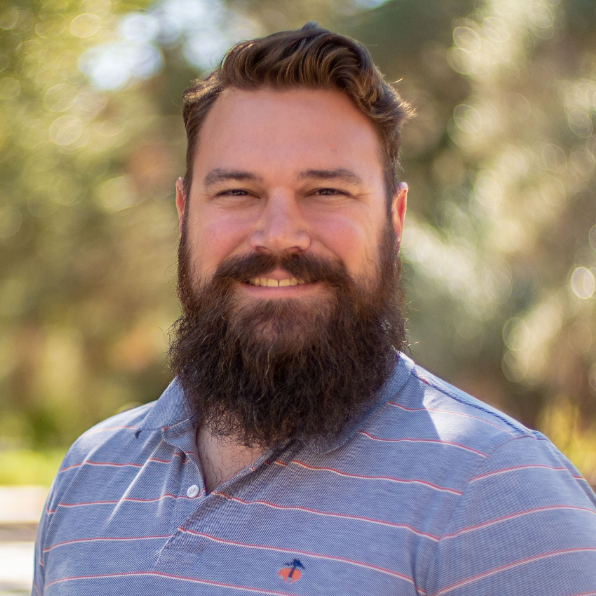It’s President Joe Biden’s goal to have 70% of all U.S. adults given at least one vaccine dose by July 4 so that life in America can start to look and feel normal again after the COVID-19 pandemic.
To be sure, it’s an aggressive goal but one that is certainly doable if the supply chain remains steady and people opt for the shot. In fact, the Centers for Disease Control recently announced that fully vaccinated people could now resume most activities without pre-pandemic precautions like face coverings indoors.
But how will the population feel when they actually have go back to work, head into the classroom and in a variety of other ways resume their “normal lives"? Will they rush back to their old ways or has the pandemic caused millions to become more cautious and circumspect?
ASU News spoke to Michael Varnum, an associate professor in Arizona State University’s Department of Psychology about the how people might be feeling as these changes unfold.
Michael Varnum
Question: Now that people are getting their vaccinations, do you expect there to be a rush to reintegrate into society or will people be reluctant to resume pre-pandemic ways of living?
Answer: I think the vast majority of people will fairly quickly shed habits they picked up during the pandemic to avoid infections. Humans have a pretty strongly hard-wired need to belong, to connect to others and to experience physical contact and touch. It's normal for us to see each others’ faces, to travel, to share meals and these things are arguably part of our programming, so to speak. I think we are already seeing this return to normal among many, many vaccinated people. It’s also worth noting that a segment of the population didn’t do much differently at all during the pandemic, so one wouldn’t expect them to have much difficulty with it either.
Q: Why did we as a society initially anticipate that reintegration would be a strange or difficult transition?
A: Researchers who study prediction, people like Philip Tetlock, Daniel Kanheman and their colleagues, have found that we tend to be pretty bad at predicting the future. One reason for this is that we fall prey to something known as focalism, a tendency to put too much emphasis on current conditions or highly salient events when trying to predict future developments. I remember lots of popular press speculation about a "new normal," that would be radically different. With roughly half the U.S. population vaccinated and cases on the decline here, it strikes me at least, that the "new normal," is shaping up to look a lot like the “old normal.”
Q: Will there be a segment of the population who don’t feel comfortable reintegrating? Who might they be and why?
A: There are of course individual differences in the speed at which folks are reacclimating, and some, for example, those who were high in germ aversion or perceived vulnerability to begin with, might take longer than others to be comfortable returning to a more normal mode of life. Similarly, if I had to guess, people higher in the personality trait neuroticism might also be more hesitant to return to pre-pandemic ways of life.
Q: You've been running studies trying to assess psychological changes as a result of the pandemic. What are you finding about the how pandemic did or did not change us?
A: Although many aspects of life changed — masking, virtual work and schooling for most, restrictions on travel, shortages in toilet paper — surprisingly, our data and findings from a number of new studies coming out, suggest fairly little changed in terms of people's psychology. For example, in one study looking at basic social motivations — things like making friends, gaining status, finding mates, caring for children — among more than 15,000 people in dozens of countries, my colleagues and I found virtually no changes from pre-pandemic levels in the importance of these goals, with the quite sensible exception of an increase in the motivation to avoid infectious disease.
In another study, focused on assessing the accuracy of people's predictions for COVID's societal impacts last year, my colleagues and I found that people, both behavioral scientists and regular folks, vastly overestimated the impact of the pandemic on trends in things like well-being, loneliness and political polarization. Interestingly, our participants’ forecasts also systematically underestimated the increase in violent crime that occurred during this period. Again, a number of other studies are finding generally similar results — much less changed than one might have guessed. Certainly, much less than I guessed back last spring.
Q: Do you think any of the changes in our lives — either personal or work — will stick going forward, or are there things we might consider holding onto?
A: This is an interesting one. Just anecdotally, I've heard some people say they actually plan to keep wearing masks in places like grocery stores, not so much out of COVID-related concerns but so they can skip the annual cold or flu they used to get. I think there is also some reason to suspect that an increase in telecommuting, which the pandemic accelerated, may stick with us to some degree. Some people genuinely like it and it reduces overhead for many employers. It also arguably has some environmental benefits. That said though, I'd guess that most people if given the choice will prefer to work, study and socialize in person, given that deep need we have for human contact and connection. I also think a lot of us are fairly sick of Zoom and other videoconferencing software at this point and will be happy to have it play less of a role in our lives. But then again, my own work suggests that you should take my predictions with a grain of salt.
Top photo courtesy of Pixabay.com.
More Science and technology

Cosmic clues: Metal-poor regions unveil potential method for galaxy growth
For decades, astronomers have analyzed data from space and ground telescopes to learn more about galaxies in the universe. Understanding how galaxies behave in metal-poor regions could play a crucial…

Indigenous geneticists build unprecedented research community at ASU
When Krystal Tsosie (Diné) was an undergraduate at Arizona State University, there were no Indigenous faculty she could look to in any science department. In 2022, after getting her PhD in genomics…

Pioneering professor of cultural evolution pens essays for leading academic journals
When Robert Boyd wrote his 1985 book “Culture and the Evolutionary Process,” cultural evolution was not considered a true scientific topic. But over the past half-century, human culture and cultural…

